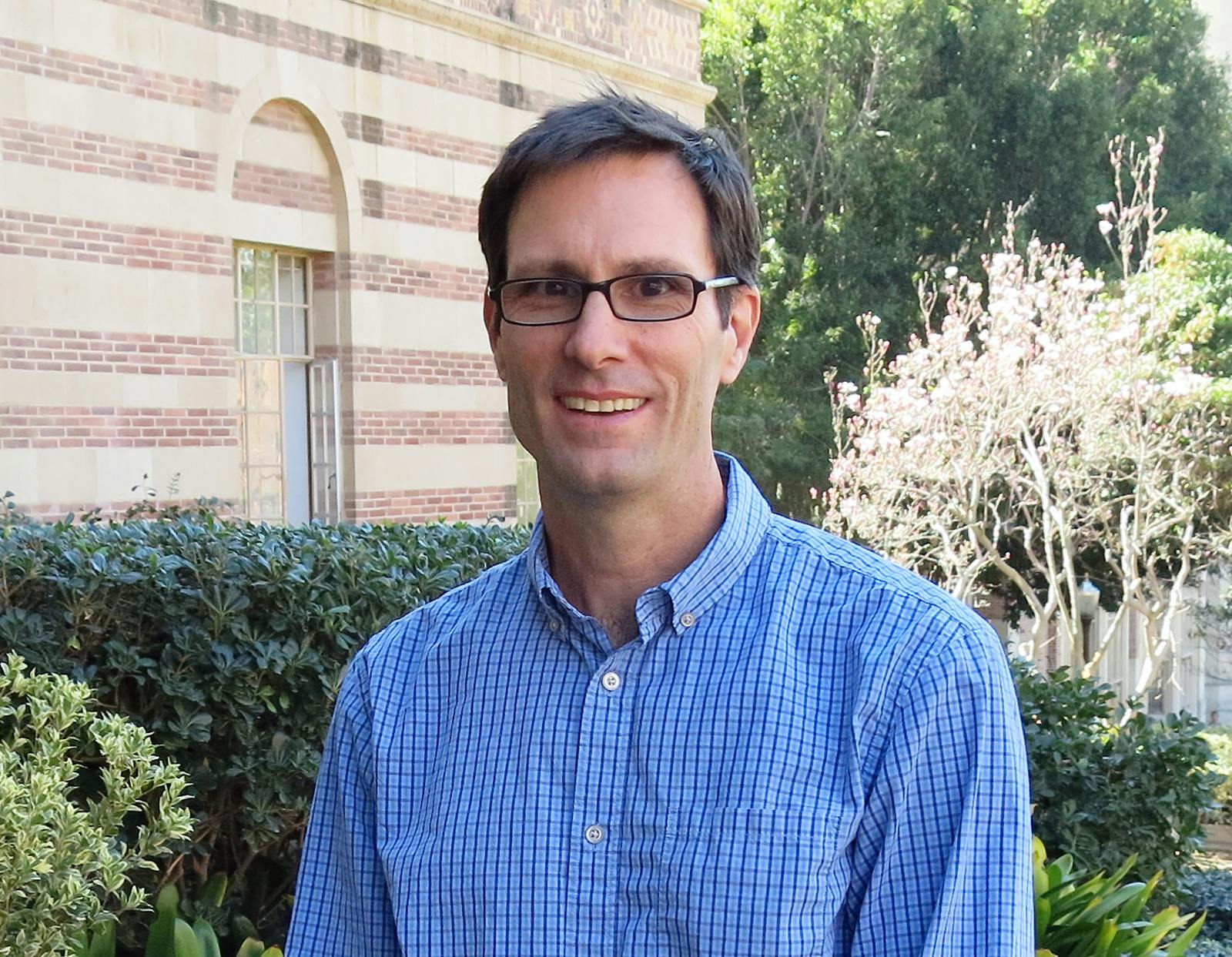UCLA Professor of Education William Sandoval is the principal investigator in a study on bringing science teaching up to the Next Generation standards. The four-year study, which is supported by a $2.8 million grant from the National Science Foundation, is in collaboration with more than two dozen teacher leaders in the Montebello Unified School District, to examine best practices for middle and high school classrooms. Sandoval’s research team includes Jody Priselac, associate dean for community programs, UCLA Ed & IS, who serves as co-PI, and Lynn Kim-John, director of the UCLA Science Project at Center X.
Sandoval says that one of the main changes that the Next Generation science standards will entail is replacing “cookbook” experiments with actual scientific inquiry by students.
“Science processes – doing experiments and creating models and so forth – have historically been done in a way that is really separate from learning scientific concepts,” he says. “The idea is that kids should make models and do experiments in a way that is very tightly coupled to [this] learning.
“Part of the aim of doing that is not just that kids learn concepts better – which the research we have suggests happens – but that we want students to understand how science actually happens. What the Next Generation standards are trying to do is … have kids use the data they get from their experiments to learn the scientific concepts we want them to learn. It’s a big change for teachers to focus on practices of experimentation, modeling, arguments, and data analysis… and helping them to understand that is one big job.”
Sandoval says that under the new science standards, students have to engage in productive conversations about their experiments and lessons.
“A big part of what we’re doing is helping teachers learn strategies for generating, orchestrating, and managing student-to-student talk,” he says. “It’s not typically the case, at least not in science classes, that kids are really sharing ideas across groups. They may disagree about how something works, but they are not necessarily engaged to figure out [whose theory] is right.”
Sandoval, who teaches in the Teacher Education Program (TEP) at UCLA, says that the Montebello Unified School District has been a great fit with his research team for the project.
“I’ve been working with teachers and kids for a long time, to do the kinds of things that the standards are calling for now,” he says. “The Montebello School District has been incredibly enthusiastic and supportive of the work. The teachers we work with are extremely dedicated to thinking hard about their teaching. We couldn’t ask for a better partnership.”
Sandoval has previously worked on a project at UCLA Lab School with UCLA Professor of Education Noel Enyedy on interventions for student-to-student talk in intermediate level science classrooms. With this work, Sandoval developed the model he is using in the NSF project.
“Ultimately, I hope this work doesn’t just go toward getting teachers and students to meet the Next Generation standards,” says Sandoval. “The reason that the new standards are exciting is that they open a clear pathway to getting kids to learn [science] in a way that will help them to use it outside of school.”
Professor Sandoval earned his Ph.D. in learning sciences from Northwestern University, and his B.S. in computer science at the University of New Mexico. In 2011, he was elected to the Board of Directors of the International Society of the Learning Sciences, and in 2004, he was appointed to the National Academy of Sciences Study Committee on High School Science Laboratories: Role & Vision section.
At UCLA, Sandoval has been the recipient of the Bobbie and Mark Greenfield Award for Applied Research in Learning and Achievement (2010), and the Lois Haytin Award for Outstanding Research on Teaching and Learning (2008). At UCLA Ed & IS, Professor Sandoval served as head of the Psychological Studies in Education Division from 2007-09 and 2011-12, and is currently head of the Urban Schooling Division.
